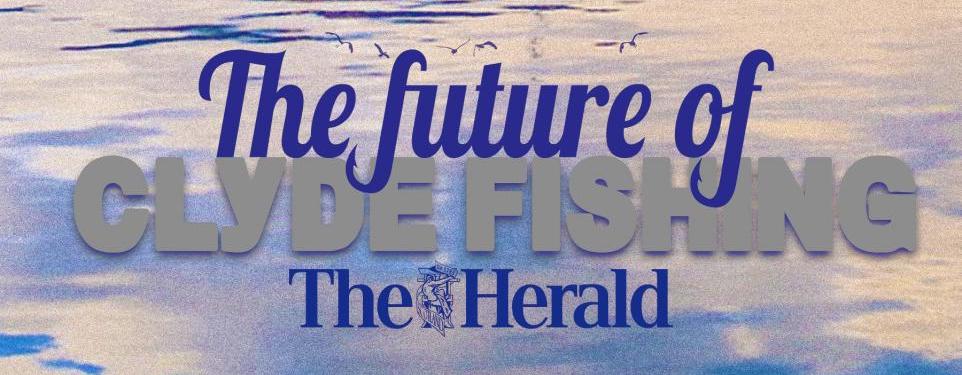The following letter was sent to the Herald in early November in response to the op-ed written by Elspeth Macdonald, Chief Executive of the Scottish Fishermen’s Federation as part of the ‘Future of Clyde Fishing‘ series
Update: The letter was published in the Herald Letters here

It is with sadness and frustration that members of the Our Seas Coalition read Elspeth Macdonald’s op-ed (‘Why we will continue to oppose the introduction of a three-mile limit‘, 31st October 2024). Her dismissal of legitimate concerns about the health and future of Scotland’s fisheries as “exaggerations” and “evident falsehoods” undermines constructive dialogue.
The Our Seas coalition, and over 13,000 signatories of its campaign petition, seek to promote and catalyse voices calling for better protection from our seas.
It is worth repeating and celebrating that the Our Seas coalition is not a singular environmental organisation, but rather an alliance of 140 members, including many coastal businesses (ie. restaurants, seafood suppliers, shops, tour operators) as well as well-established membership organisations such as the National Trust of Scotland, a federation of commercial fishing associations, the Scottish Creel Fishermen’s Federation, and several small fishing businesses. It represents recreational fishing interests, community groups, dive clubs and environmental groups. All important stakeholders who rely on the health of our inshore seas. We are also working to amplify the voices of individuals living and working on our coastline – voices often marginalised in decision-making – through the touring Coastal Testimonies exhibition.
In an attempt to rebuild the conditions for improved dialogue we note here that the SFF has simplified what we are working toward and has attempted to argue for a position that does not actually exist, so let’s try to clear this debate of these inaccuracies first of all.
Before any further confusion is sowed, the Our Seas Coalition is not calling for a “blanket ban” on trawling and dredging everywhere in inshore seas, as suggested by SFF, through a simple reintroduction of the previous three-mile limit on bottom-trawling that was unwisely repealed in 1984. The coalition has for the last four years proposed the reintroduction of a ‘modern version’ of this limit that would stop those activities operating where they are causing harm and where more sustainable fishing methods can be used instead. We are also advocating for everyone to be supported through this transition. In practice, we would like to see Scotland’s coastal seas safeguarded so that our environment, fisheries, and coastal communities can recover and thrive for generations to come. Other countries do this. Scotland can do it too.
Organisations within the Our Seas coalition frequently collaborate with fishermen – it’s not unusual for at least one attendee in our calls to join from a wheelhouse whilst out fishing – and so are always happy to speak with anyone in SFF membership. It is essential when engaging in public policy debate to respect and acknowledge diverse perspectives and the surrounding evidence base. Unfortunately, a breakdown in dialogue often stems from obstructive approaches, reactionary stances or defensiveness, none of which serve the collective good.
The SFF claims that “studies show that co-existence would be much better than exclusion” are highly misleading. The published evidence clearly indicates that an inshore limit on bottom-towed fishing methods would yield much better economic outcomes for Scotland’s fragile coastal communities – as well as the environmental benefits. Scottish Government commissioned research stated that “a trawling ban within 3 nautical miles of the coast …may result in an increase in gross value added of around £6 million,” and an even greater amount (£14m) with more targeted planning which would see no-trawl zones. The 2014 ‘Assessing the Options for Change’ report also projected at least an additional 99 jobs over 20 years, under the most conservative model, and over 2,500 jobs in other more favourable scenarios. Acting on this research seems more urgent with every passing year, given the current steady decline in fishing jobs in Scotland and the need for renewal in our coastal communities. Both these studies find putting parts of our inshore seas off limits to bottom-trawling delivers more benefits in some areas than others, but they both find that the present situation is both worse environmentally and economically than if we were to act.
We can only hope that the SFF’s vision of “co-existence” isn’t so far from the coalition’s vision for a modern inshore limit. The only way to seek results is through discussion and collegiate working from across Scotland’s civic society, parliamentarians and government.
We therefore urge the Scottish Government to take a more active role in governing fisheries to foster a discourse rooted in respect, integrity, shared values and a robust evidence base. The government alone possesses the authority and resources to set the framework for balanced, mediated dialogue among stakeholders. Despite the frequent reference to the Scottish Government’s co-management approach, its current implementation is falling short—not only for Scotland’s beleaguered inshore fisheries and degraded marine environment, but also for our nation as a whole.

Hayley Wolcott
Coordinator for the Our Seas Coalition.
Leave a Reply